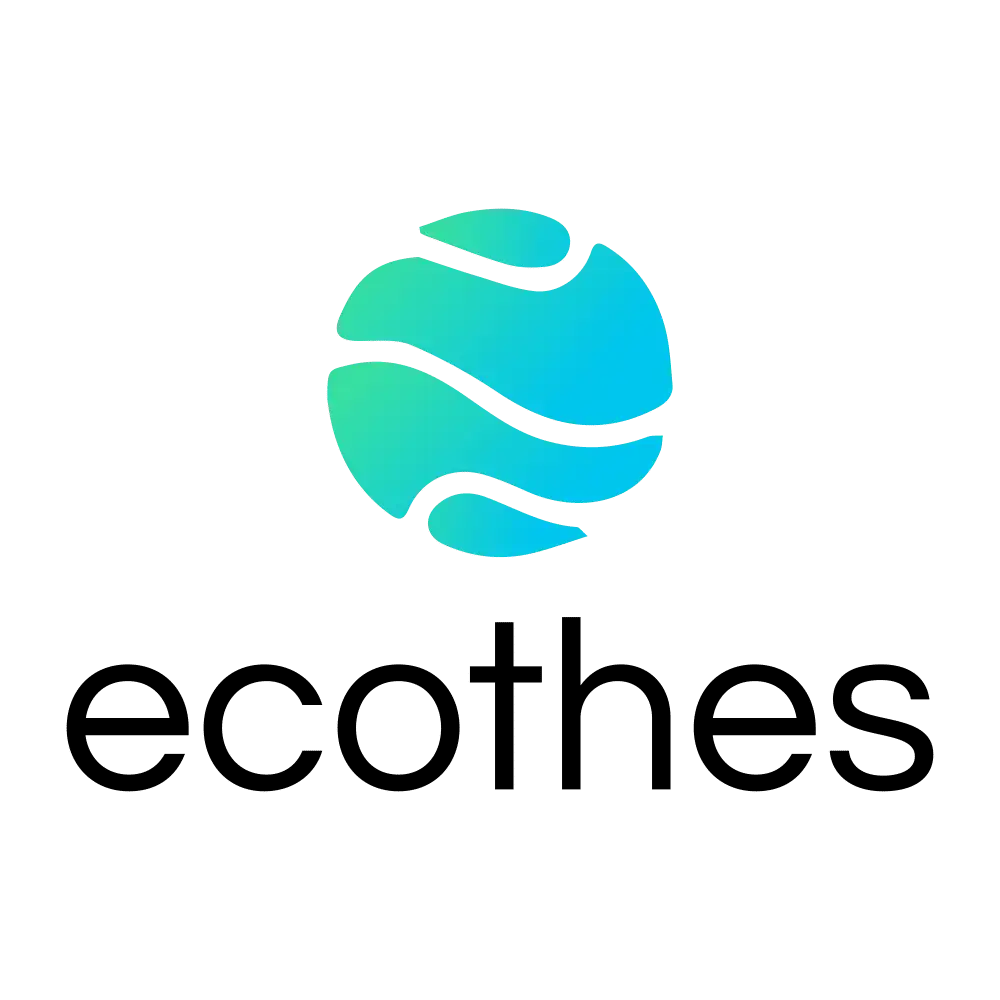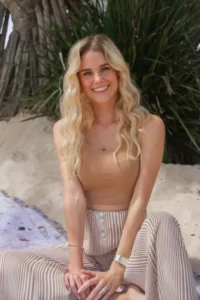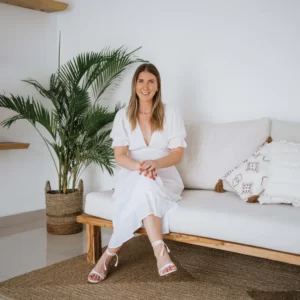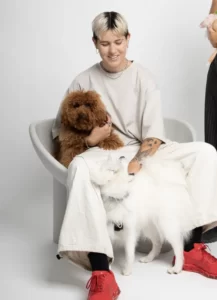We’re reader-supported. The following post contains affiliate links. If you click through a link and make a purchase, we may receive a commission. We only partner with brands who share the same values as we do.
Hello! Can you tell us a little more about yourself and your brand?
We’re Karina and Sam Seljak from Seljak Brand. ?
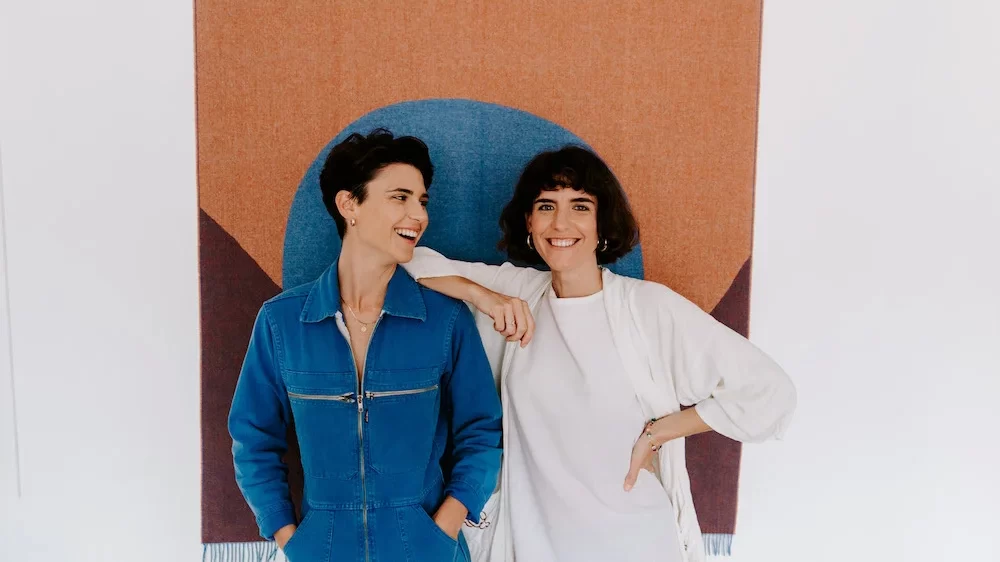
We work with mills around Australia and Europe to transform their textiles waste into beautiful new blankets.
Our blankets are for people that value versatility and longevity in the products they buy – the blankets are cozy and durable and can be taken from cuddling on the couch to a camping adventure.
Once the blankets come to the end of their useful life, they can be remanufactured into new blankets.
What drove you to start Seljak?
In a world of fast fashion, and more generally overconsumption, we wanted to respond to the growing waste issue and consider alternatives for managing resources. We began to research various models and came across the circular economy framework, which cycles waste through continuous loops like care, repair, recycle and remanufacture.
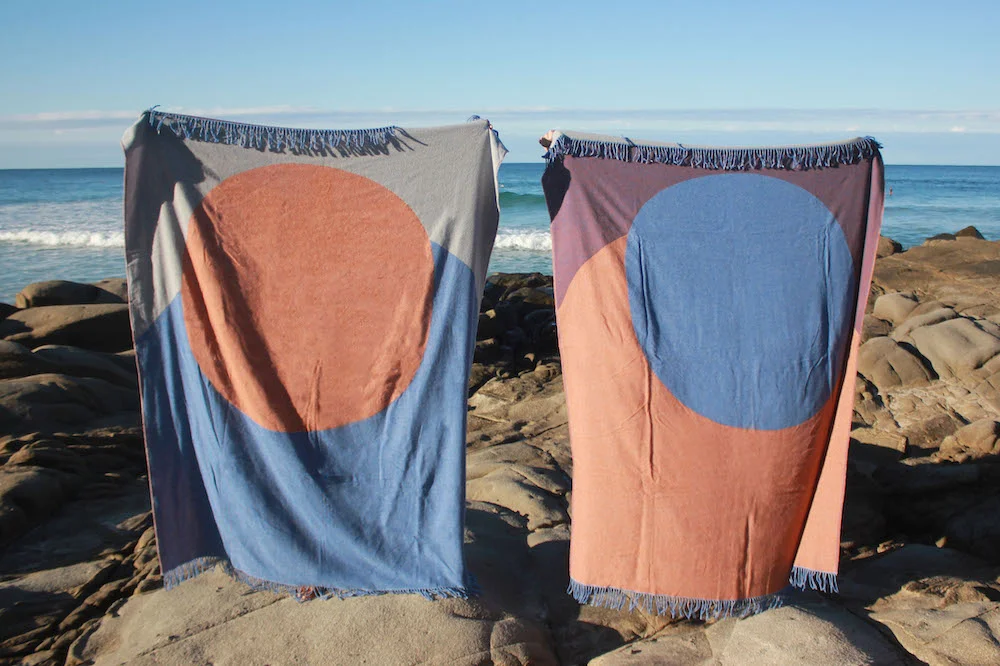
We started Seljak Brand in 2016 with the intention of discovering new ways of making things that are regenerative by design, and sharing this journey with consumers. Because, after all, it’s in the use phase of a garment that most environmental impacts are made, like washing and drying, so engaging people in the whole lifecycle of a product is very important.
What were the main challenges and learnings you had when starting the business?
When starting the business, the biggest challenge was to innovate an entirely new product, which would have required a new manufacturing process, before we launched.
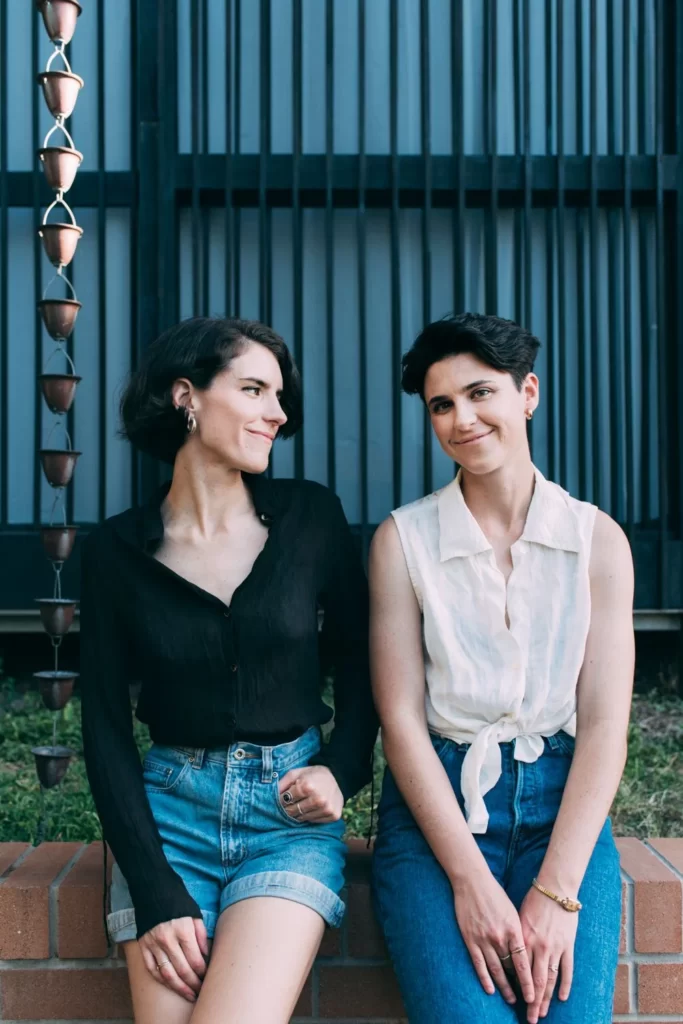
Because we don’t operate our own mill, instead we needed to launch with an existing product, and innovate with our mill partners as our relationship deepened. As we proved the concept that recycled wool blankets are desirable by being live on the market, more mill partners were willing to work with us on a variety of more ambitious projects.
How do things compare today to when you first started the brand?
Things have changed a lot since 2016! The idea of using waste to make new products is totally mainstream, and we see this from swimwear made from recycled PET to high end furniture made from recycled concrete, wood and other materials.
In your eyes, what’s the biggest achievement or milestone in your journey so far?
We’re most proud of contributing to raising consciousness around not only the impact of fashion but that there are other possible ways of making and consuming things. To be an inspiration to other young designers is our greatest achievement in our eyes – when folks approach us after speaking events sharing their own ambitions to start waste-free initiatives, we feel like we’ve achieved what we set out to do.
We’re most proud of contributing to raising consciousness around not only the impact of fashion but that there are other possible ways of making and consuming things.
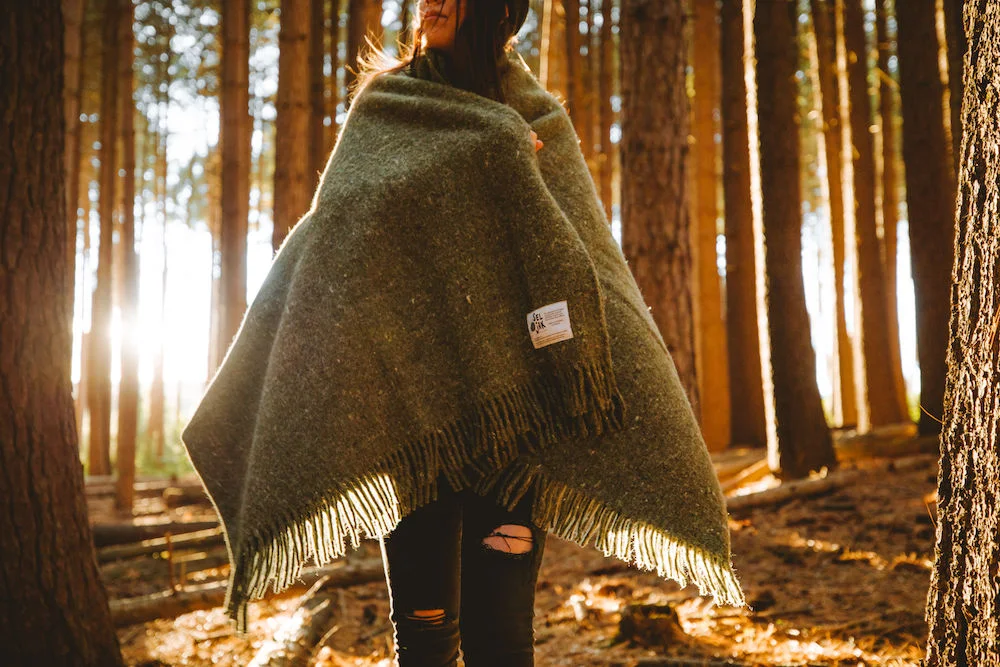
How do you ensure Seljak stays true to your mission as you grow?
We have fairly tight criteria when we create new blankets and work with new mills, and have implemented independent auditing and certification to stay accountable to the industry beyond aligning with our own values. Also, after scoping many other product options to expand our range, we decided doing one thing well was a more genuine exploration of our concept and stuck with blankets!
What do you think are the main challenges around sustainability for brands today?
It’s fantastic to see the uptake of using waste as a resource but greenwashing has become rife, with many entrants on the market making misleading claims about the ‘sustainability’ of their products. So consumers are both more educated and discerning, but potentially more confused!
Being an authentic brand is the most important thing
Being an authentic brand is the most important thing here, where doing what you say you do is paramount to gaining and maintaining trust of consumers. We do this by sharing step-by-step manufacturing processes, and care and repair guides, with our audiences. Transparency and education is how consumers are empowered with the correct information to make their own informed choices.
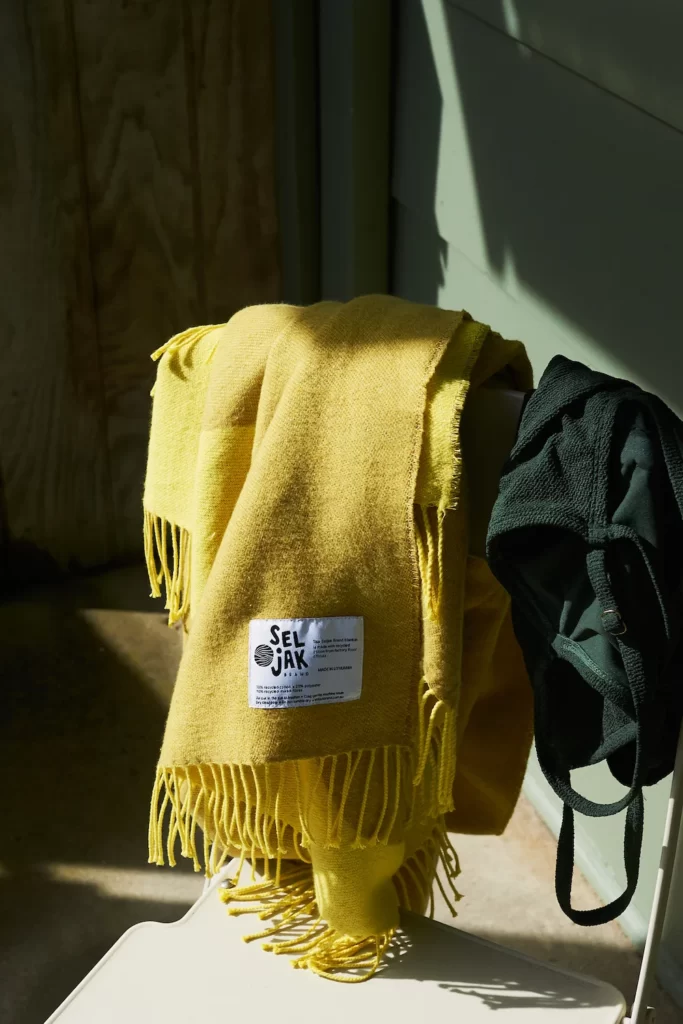
Have you ever had to make trade-offs to ensure your actions don’t divert from your brand’s mission?
Initially, we wanted to make everything in Australia but in 2019 we introduced our Lithuanian supplier because we had outgrown the scale that our Australian mill could produce.
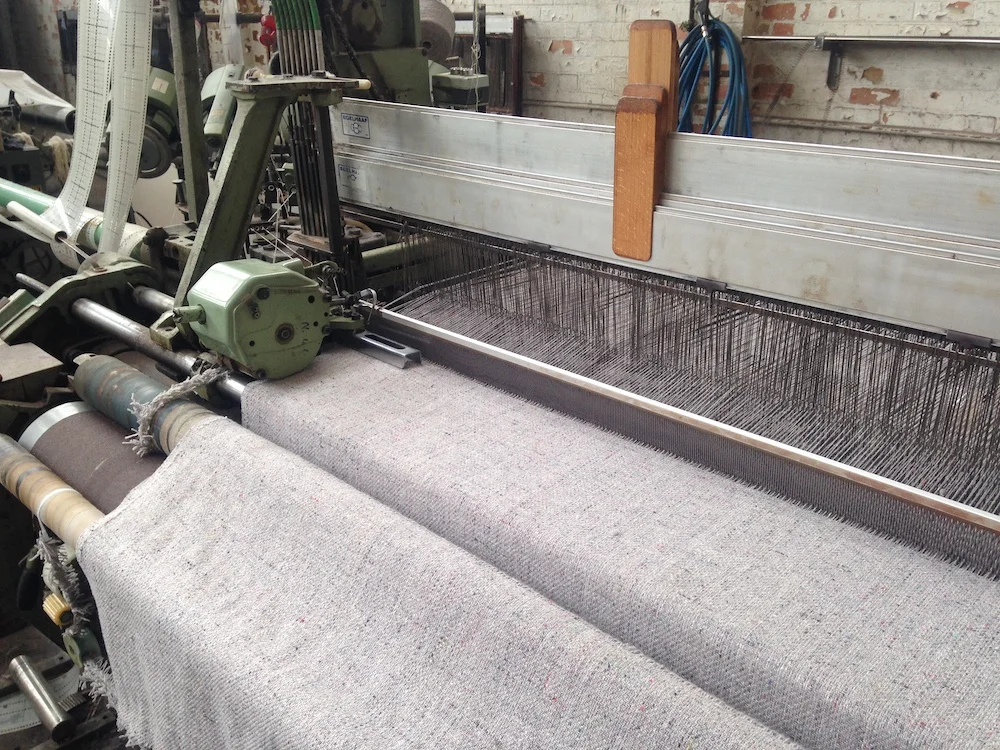
Although it seemed antithetical to what we were trying to do, we were inspired by what the global market could achieve. The Lithuanian mill we work with collects the textiles production offcuts from 16 mills around Europe to create beautiful blankets!
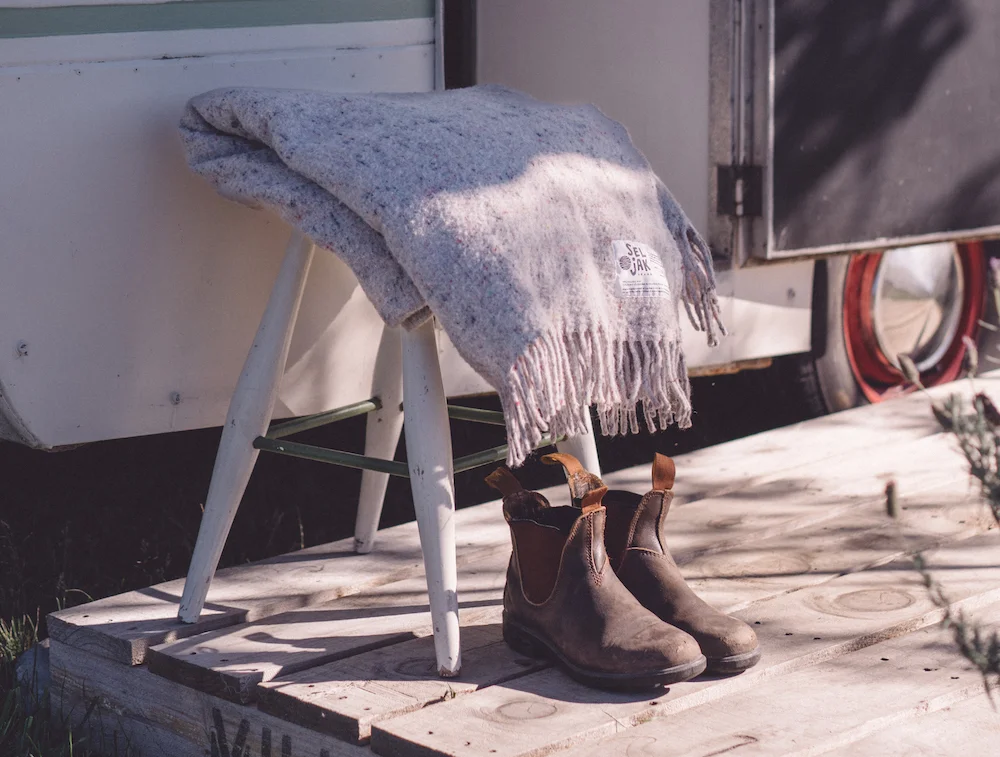
Do you have any advice for people looking to be more sustainable in their consumption habits and lifestyle?
When it comes to products specifically, educating yourself about how things are made is the first step. As you learn (overtime, not overnight!), you can create your own list of qualities that are important to you, for instance products that are built to last, made locally, made by artisans with fair trade agreements, able to be repaired, able to be recycled or composted and so on.
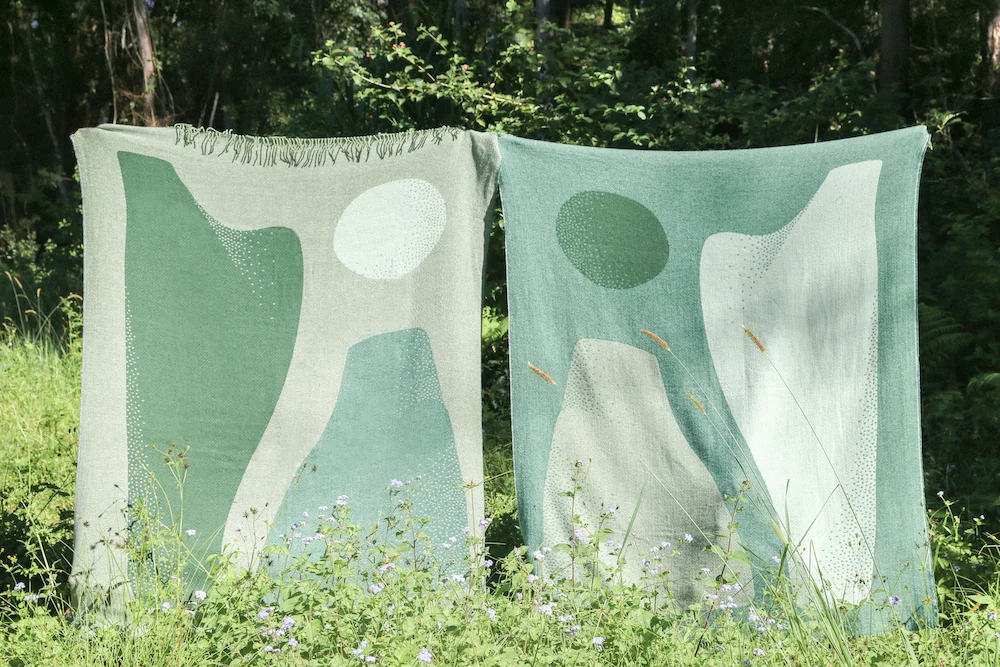
Having your own clear values and sticking to them is not only motivating and satisfying but inspiring to the people around you!
We want to say a huge thank you to Karina and Sam Seljak from Seljak brand!
Make sure you check out the brand’s incredible sustainable blankets here!
